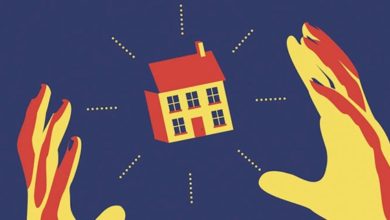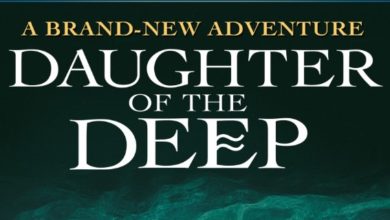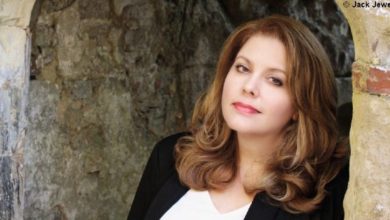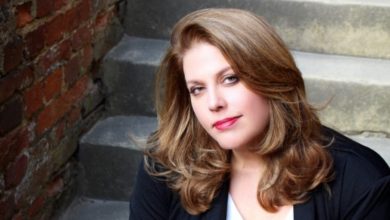Interview with Siri Pettersen, Author of The Raven Rings
After reading Odin's Child, the first book in The Raven Rings trilogy, we sat down for an interview with author Siri Pettersen
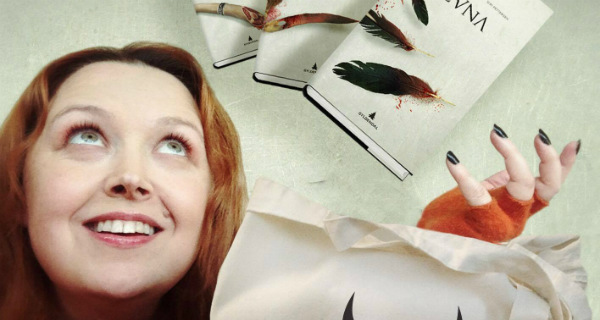
Siri Pettersen’s trilogy, The Raven Rings, has not yet been translated into English, but we had the privilege of reading it and talking with the Norse author behind the award-winning series. It all started, we found out, because of a character the author played in a Dungeons & Dragons game. But 10 years later no sign of that game remained. Instead, Ynslanda came into being – a rich and broad world, weaving together elements from the Norwegian culture and from that Northern country’s dramatic landscape and from feudal Japan.
So, if the trilogy has not been translated to English yet, how could we have read it? Well, this is where having an international crew comes in handy. Original and with a strong-minded and well developed female main character, Odin’s Child has definitely raised our curiosity. We knew we had to learn more about the author, and if possible, have a chat with her, and allow you to get to know her better, too. And so, without further ado…
Hi Siri and thank you for agreeing to have this interview.
Hey, you’re very welcome.
Let’s start at the beginning. What was the original kernel of idea that started “The Raven Rings,” and how did it grow into the trilogy it became?
Ooh, that’s a tough question, because there was never an epiphany, no one single moment or idea where it all began. If there was such a thing as a beginning, it would be the main character, Hirka. She started out as a character I made for a Dungeons & Dragons role-playing campaign, like 15 years ago. Even if she is different now, there are similarities that became essential for the books: She was a redhead, she had two crows that she could talk to, she was into herbs and healing, and she had a strong sense of right and wrong. The story matured for a decade before I took time to write it properly. Ten years is a long time. The story develops a strong “sense of self”, and it becomes easier to know what ideas belong and which don’t. As for the trilogy: It’s almost always three books! I just knew from the start it had to be 😀
The fact that the plot of “Odin’s Daughter” doesn’t take place in this world does not necessarily mean that the foundations of Norse mythology are not true or relevant. Why did you choose to deviate so much from the myths we know? Where have all the gods gone?
This story was never meant to be about Norse mythology. Many have written about that before me, and many will do it again. Maybe even me. I wanted to create something original, but familiar. Ymslanda, the world in the books, is parallel to our own world. Norse mythology was our religion, not theirs. They had their own myths. But the idea is that aspects of their world has travelled to us, affected us, and maybe even changed our stories. It is realistic to think that if travel between worlds was possible, there would be a cultural exchange. I think I made this connection stronger throughout the trilogy, and hopefully there will be a few “aha” moments by the end, where you recognize parts of Norse myths.
Hirka is not “The Chosen One”. She is the opposite of chosen. She is the only one without any powers. Why that choice?
Honestly, when I made that choice, that’s when it got interesting. That’s when it felt new and complicated. Having exclusive powers is very familiar, and a lot has been written about how that affects someone. How they deal with it. It just felt more intriguing to deal with the lack of powers. Maybe because it’s so much more relatable?
What is “the rot” Hirka supposedly carries, and why do Odin’s Children posses it?
The Rot is a terrible plague, a disease that causes you to rot instantly. According to the stories, this would happen to anyone who got too intimate with a human. This strongly suggests a sexually transmitted disease. The idea actually comes from Norwegian folklore, where we have a creature called “hulder”. She was said to be so beautiful that she could seduce men to follow her deep into the woods, never to return. But if you saw her with her back turned, she would be hollowed out, like a rotted tree stump.
Are Hirka’s emotions of otherness and alienation and foreignness a reflection of your own experiences?
In some ways yes, in other ways no, and it would surprise me if this wasn’t universal 🙂 Everyone feels that way, at some point. Some for an hour, some for years, and some have to cope with it their entire lives. It can be all in your head, or it can be very real.
How is life different, now that you are a published author an all the books in the trilogy have come out?
My life was turned upside down when the first book was published. I could drop everything, and just keep writing, which almost feels like cheating! It’s never supposed to happen that way. It usually takes years and many books. I have my insane readers to thank for that. Their dedication and enthusiasm has created a dream job for me, and I can’t thank them enough.
Some authors dedicate most of their career to exploring one world/universe. What is next for you? Will you expand on The Raven Rings’ world, or will you pull a Hirka and abandon that world?
Great question! I will expand! First I took a “break” to write the children’s book “Bubble”. But now I am working on a new series, independent of The Raven Rings, but still connected. Meaning you don’t have to read The Raven Rings first, but if you have, you will know what the connection is. So same universe, but entirely new world and characters 🙂
Do you feel you are at some kind of a disadvantage because you are from Norway and not from one of the English-speaking countries?
Not at all. Yes, Norway is a small country, and few people in the world speak Norwegian, but we do have strong policies in place to support literature, possibly better than anywhere else. And more importantly: If I was from any other place, I might not have written stories build on a norse foundation.
In other interviews, you have often mentioned your fascination with ravens, but they are not the only ones who seem to strike your fancy. Another important element in The Raven Rings is… Tea. Is that also from you?
Haha, yes! Well spotted, I love tea. And I’m a bit of a snob about it. And much like wine, I prefer clean tea with no added flavours, only tasting of origin. My favourites are the famous oolong teas from the Wuyi mountains in china, also called rock teas.
If you could have a tail, what kind would you choose?
I’m not sure, but I always had a thing for the smooth, hairless tails with the arrow or spade-shaped tip, like they used to paint on demons in the earlier days… Don’t tell anyone!
It’s only a matter of time before people around the world will have the chance to visit the realms of The Raven Rings. Any message you would like to send to them?
Yes. I’m told I’m sort of brutal when it comes to skipping exposition. I dump readers in the middle of things, without explaining everything. But relax, don’t panic, what you don’t understand at first, will be made clear. Also: be good to crows and ravens, they remember everything! I wish you all a wonderful journey to Ymslanda.

